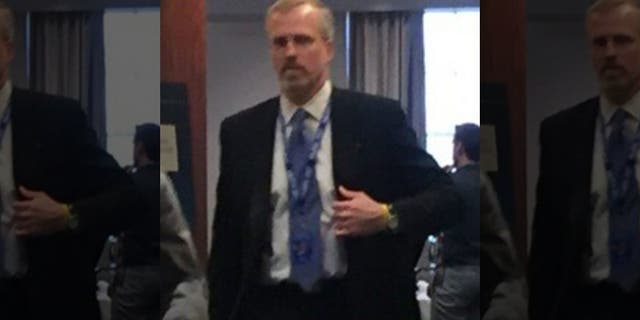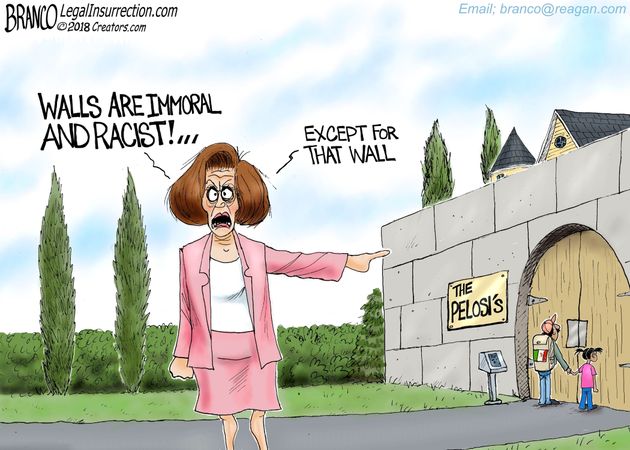So much for his hero status,
McCain associate shared unverified Steele dossier with Buzzfeed, court filing says
Judge Napolitano's Chambers: Fox News Senior Judicial Analyst Judge Andrew Napolitano explains why two the criminal investigations against President Donald Trump are closing in and how the president's agenda could be placed in jeopardy.
An associate of the late Arizona Republican Sen. John McCain shared with Buzzfeed News a copy of the unverified, salacious opposition research dossier alleging that Russians had compromising material on President Trump, according to a bombshell
federal court filing Wednesday.
McCain had
strenuously denied being the source for Buzzfeed after it published the dossier, which was funded by the Democratic National Committee (DNC) and the Hillary Clinton presidential campaign. In recent days, the dossier's credibility has increasingly come under question, as the Yahoo News investigative reporter who broke news of its existence said many of its claims
were "likely false," and an adviser to ex-Trump lawyer Michael Cohen said Cohen never went to Prague to pay off Russian hackers, as alleged in the dossier.
Nevertheless, the FBI
extensively relied on the dossier in its warrant applications to the Foreign Intelligence Surveillance Act (FISA) court in seeking to surveil Trump aide Carter Page. On four occasions, the FBI
also incorrectly suggested to the FISA court that the Yahoo reporter, Michael Isikoff, had written an article that provided an independent basis to surveil Page -- even though London court records revealed Isikoff was, in fact, relying on the leaks from the dossier's author. (Page, who has not been charged with wrongdoing, is now
suing the DNC for defamation.)
Earlier this year,
Fox News reported that a top McCain associate, David Kramer, had been briefed on the dossier written by British ex-spy Christopher Steele in late November 2016 in Surrey, England. Kramer invoked his Fifth Amendment right against self-incrimination to avoid testifying before House Republicans about his handling of the dossier.
McCain has acknowledged giving the dossier to the FBI. But, until Wednesday, it remained a mystery what role, if any, his associates might have played in the dossier leaking to the media shortly afterwards.
David Kramer. (Fox News, File)
The new revelations were contained
in an opinion authored by U.S. District Judge Ursula Ungaro. The opinion granted Buzzfeed's motion for summary judgment in a defamation action brought by a global corporation based in Luxembourg, XBT Holdings, which alleged that Buzzfeed had recklessly spread misinformation in the dossier about XBT's purported involvement in cyberwarfare against Democratic Party officials.
Ungaro cleared Buzzfeed of liability for defamation on the basis of the "fair report privilege," which broadly protects media outlets from defamation actions when they publish official reports, as long as they clearly indicate that the reporting is not their own. The statements about Kramer and McCain's activities were contained in Buzzfeed's unsealed motion for summary judgment, which Ungaro cited extensively in his ruling.
In November 2016, according to the filing, McCain sent Kramer, a director at the McCain Institute for International Leadership, to London to meet with Steele.
McCain had learned from Sir Andrew Wood, the former British Ambassador to Russia, that Steele had collected damaging information about Trump, according to the filing. Wood was an informal adviser to Orbis, which was retained by Fusion GPS, the firm behind the dossier.
Fox News previously reported on Wood's involvement.
On Nov. 28, 2016, Kramer met with Steele and later obtained copies of the dossier from Glenn Simpson, the head of Fusion GPS, the filing states. Kramer then met with Buzzfeed reporter Ken Bensinger on Dec. 29, 2016 at the McCain Institute.
There, "Kramer reviewed with Bensinger what he knew about the dossier and explained that he took the allegations seriously." Then, Kramer showed Bensinger the dossier and purportedly informed him that “some of the information was unverified."
Comey: Notion FISA court was abused is 'nonsense'
Questions grow about FBI vetting of FISA dossier; panel reaction to on 'Hannity.'
Bensinger left his meeting "with copies of all seventeen memos" authored by Steele, and promptly took the compiled dossier to Mark Schoofs, BuzzFeed’s senior editor in charge of investigative reporting.
The McCain Institute did not immediately respond to Fox News' request for comment.
REPORTER WHO BROKE NEWS OF DOSSIER'S EXISTENCE SAYS MANY OF ITS CLAIMS ARE 'LIKELY FALSE'
Buzzfeed published an article entitled "These Reports Allege Trump Has Deep Ties to Russia" that included the 35-page dossier on January 10, 2017, shortly after a CNN report revealed the dossier's existence.
Senior Justice Department official Bruce Ohr, left, continued to communicate with former British spy Christopher Steele, right, even after the FBI cut ties with him. (AP)
Judge Ungaro remarked in a footnote: "The parties dispute whether Kramer gave Bensinger a copy or whether Bensinger took photos of the Dossier when Kramer was not looking. Kramer testified that Bensinger took photos of the Dossier when Kramer was out of the room, even though he asked Bensinger not to."
However, in a later declaration, "Kramer stated that he had no objection to Bensinger taking a hard copy and had provided hard copies to other journalists," Ungaro wrote.
According to the documents, Steele shared a report from the dossier written on Dec. 13 with an unnamed British security official, GOP Illinois Rep. Adam Kinzinger, R-Ill., Senior Director for Russian Affairs at the National Security Council (NSC) Celeste Wallender, and House Speaker Paul Ryan’s chief of staff, John Burks.
But, in a statement to Fox News, Ryan's team denied that assertion.
“Burks has never met Christopher Steele nor received any document directly from him," Ryan spokeswoman AshLee Strong told Fox News. "However, he was aware of and had read the dossier prior to its publication.”








